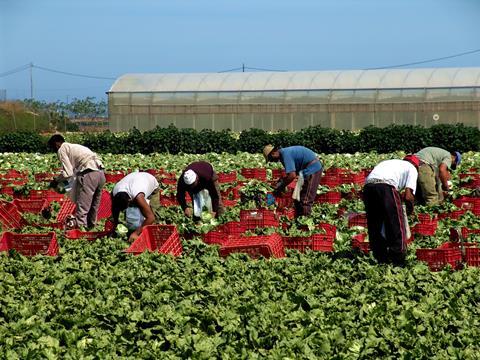Qualitative study hears what stakeholders think about crucial seasonal workers scheme
The Seasonal Workers Scheme (SWS) is viewed as a vital tool for allowing growers to recruit temporary staff, but there are still areas that users would like to see improved.

Members of the Migration Advisory Committee (MAC) and the MAC secretariat have worked with the research team at Revealing Reality to conduct a qualitative study into the Seasonal Worker Visa Scheme, which is the latest incarnation of the Seasonal Agricultural Workers Scheme (SAWS) that was used until Brexit.
The scheme allows overseas workers to come to the UK and work on horticultural farms for up to six months within a 12-month period, followed by a mandatory six-month ’cooling-off’ period.
The MAC-commissioned review aimed to examine how well the route is meeting the needs of employers, employees and other stakeholders such as Defra.
Crucial source of labour
The review found that many farms surveyed face considerable seasonal labour shortages due to the nature of the work on offer, their rural location, and challenges in attracting a domestic workforce. SWS has therefore become a crucial source of labour for these farms.
Growers using the scheme said they were largely satisfied with the quality and work ethic of seasonal workers coming through the scheme, and stressed the desire to have as many returnees for the future as possible.
Most farms within the sample reported feeling that the work was appealing to migrant workers, with many seeking to earn as much as they could during their time in the UK. Some highlighted that the money workers could earn in a season in the UK would go a long way in their home country, and saw workers’ desire to return for future seasons as testament to this.
It was noted that many farms go above and beyond the basic requirements, implementing measures to improve worker welfare such as enhanced accommodation, social events and designated welfare officers. It was made clear that worker satisfaction is a priority both for encouraging productivity and worker retention.
Some farms surveyed were not reliant on the SWS due to their proximity to large labour pools, their ability to utilise local recruitment agencies, or their ability to flatten seasonal peaks either with automation or changes in the produce they chose to harvest.
A small number of farms within the sample also opted not to use the SWS due to concerns about a lack of control over worker selection, and negative previous experiences with scheme operators.
Causes of dissatisfaction
Farms reported that the rigid time limits of the SWS – and especially the six-month cooling-off period – did not always align with the unpredictability of agricultural seasons, making it difficult for farms to retain the right number of workers for the time periods they needed them.
There was sometimes confusion about who is responsible for enforcing some of the scheme rules, such as the minimum amount of money migrant workers should have when arriving to work on a UK farm.
Some farms described the reliance on third-party agencies for worker recruitment as a burden, both administratively and financially.
Farms also expressed a desire for greater flexibility in the scheme, including the ability for workers to transfer between sectors. And most farms in the sample reported wanting clearer communication about the scheme’s future.



